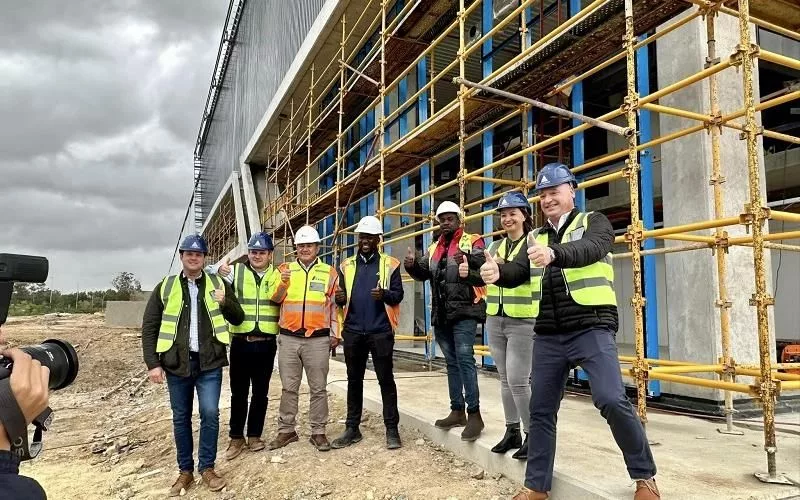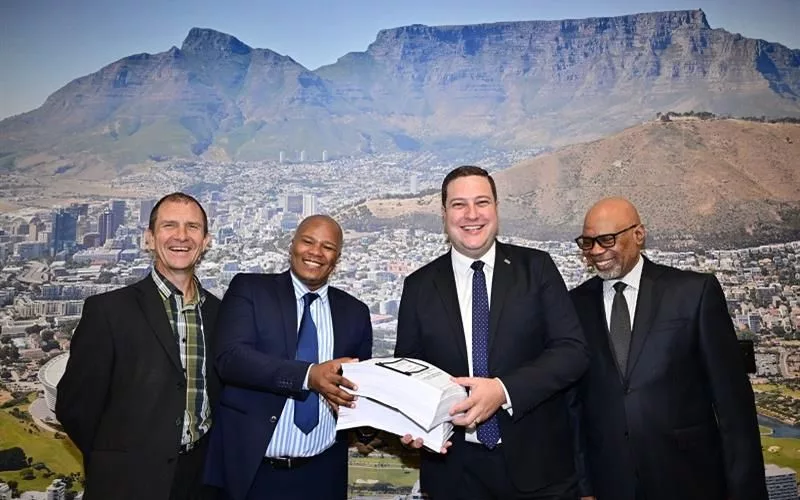Cape Town is a shining example of economic growth and job creation, attracting over R25.4 billion in investments and creating 32,300 jobs in just three and a half years. The city’s dedication to investment attraction, research, and skills enhancement has lifted many out of poverty, with an impressive 363,000 new jobs created since November 2021. Cape Town plans to invest over R40 billion into infrastructure development over the next three years to pave the way for sustainable economic expansion. Through strategic partnerships and innovative economic strategies, Cape Town has become a model city for economic growth and employment.
Cape Town has attracted over R25.4 billion in strategic investments, leading to the creation of 32,300 jobs within three and a half years. The city’s focus on investment attraction, research, and skills enhancement has lifted many out of poverty, with an impressive 363,000 new jobs created since November 2021. Additionally, Cape Town plans to invest over R40 billion into infrastructure development over the next three years to pave the way for sustainable economic expansion. Cape Town is a model city for economic growth and job creation.
In the heart of South Africa, Cape Town shines brightly, displaying the significant impact of industrial synergy. Over the last three and a half years, this vibrant city has reaped substantial gains from strategic alliances with high-growth industry organizations. These partnerships have yielded a whopping R25.4 billion in investments, and have paved the way for the creation of 32,300 jobs.
Sustained Economic Development through Strategic Investments
Cape Town’s dedication to nurturing investment attraction, research, and skill enhancement for its citizens and small, medium, and micro-sized enterprises (SMMEs) is undisputed. The proposed ‘Jobs through Construction’ Budget for the fiscal year 2024/25 earmarks a remarkable sum of over R64 million. This allocation will back organizations committed to job creation and skills development in thriving sectors. Notable examples include burgeoning industries such as call centres, tourism, green technology, and manufacturing, among others.
The remarkable R25 billion worth of investments catalyzed by these organizations within the short span of three years bears witness to this strategy’s efficacy. However, the city’s efforts have managed to achieve a more profound impact. They have lifted many individuals out of poverty, providing them with meaningful employment opportunities. According to figures released by StatsSA, an impressive 363,000 new jobs have emerged since the beginning of this term of office in November 2021.
Infrastructural Development Fuelling Growth
In addition, the city is ready to inject an unparalleled R40 billion into infrastructure development over the upcoming three years. This substantial capital infusion aims to improve transportation networks and upgrade water and sanitation facilities. It also addresses the enhancement of electricity services, thereby laying the foundation for sustainable economic expansion.
Mayor Geordin Hill-Lewis takes great pride in these accomplishments, highlighting the crucial contribution of the city’s Special Purpose Vehicle (SPV) partnerships to Cape Town’s economic triumph. Between July 2020 and February 2024, these strategic collaborations directly led to the creation of over 32,000 jobs. They also provided training to 11,000 individuals, preparing them for employment in fast-paced industries. Alderman James Vos, the Mayoral Committee Member for Economic Growth, echoes this sentiment, asserting his strong conviction in the city’s potential to stimulate job creation and investment.
Noteworthy Contributions from SPV Organisations
Among the SPV organizations the city funds, several have made exceptional contributions. CapeBPO oversees initiatives in the call centre industry, while UVU Africa concentrates on technology-driven projects like Youth in Business, aimed at nurturing entrepreneurs. BlueCape manages the booming ocean economy sector.
GreenCape merits particular recognition for enabling a substantial R1.7 billion in green economy investments. The Cape Clothing and Textile Cluster (CCTC) and The Craft+Design Institute (CDI) champion small businesses and designers in the clothing and textile sector. Their initiatives significantly assist small companies in becoming suppliers to major retailers.
Wesgro, the city’s investment promotion agency, handles projects like Air Access and Cruise Cape Town, which boost tourism and stimulate economic activity. The city also supports the Western Cape Economic Development Partnership and The Greater Tygerberg Partnership. These organizations oversee growth coalition initiatives and community-oriented place-making projects respectively.
A Model City for Economic Growth and Employment
In conclusion, Cape Town is more than just a beautiful city nestled at the foot of the magnificent Table Mountain. It stands as a symbol of economic growth and job creation, cultivated through strategic industry alliances and robust economic strategies. Its success story provides an inspiring blueprint for other cities aiming to propel economic development and build a vibrant job market.
1. How much investment has Cape Town attracted in the past three and a half years?
Cape Town has attracted over R25.4 billion in strategic investments in the past three and a half years.
2. How many jobs has Cape Town created since November 2021?
Cape Town has created 363,000 new jobs since November 2021.
3. How much will Cape Town invest in infrastructure development over the next three years?
Cape Town plans to invest over R40 billion into infrastructure development over the next three years.
4. What is the ‘Jobs through Construction’ Budget?
The ‘Jobs through Construction’ Budget is a proposed budget for the fiscal year 2024/25 that earmarks over R64 million to back organizations committed to job creation and skills development in thriving sectors such as call centres, tourism, green technology, and manufacturing, among others.
5. What is the contribution of Special Purpose Vehicle (SPV) partnerships to Cape Town’s economic triumph?
Between July 2020 and February 2024, SPV partnerships directly led to the creation of over 32,000 jobs and provided training to 11,000 individuals, preparing them for employment in fast-paced industries.
6. What are some of the notable SPV organizations that the city funds?
CapeBPO oversees initiatives in the call centre industry, UVU Africa concentrates on technology-driven projects like Youth in Business, BlueCape manages the booming ocean economy sector, GreenCape enables substantial green economy investments, CCTC and CDI champion small businesses and designers in the clothing and textile sector, and Wesgro handles projects like Air Access and Cruise Cape Town, which boost tourism and stimulate economic activity.








